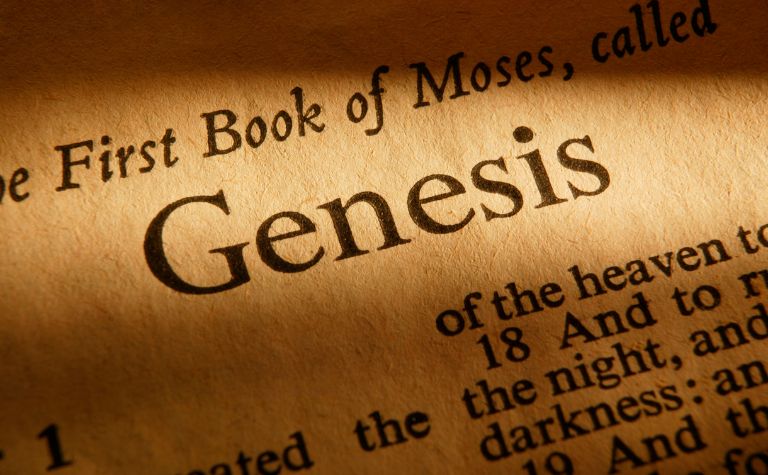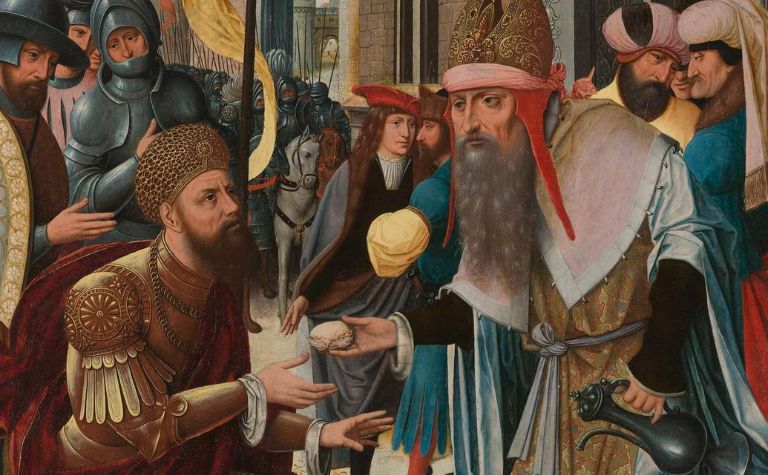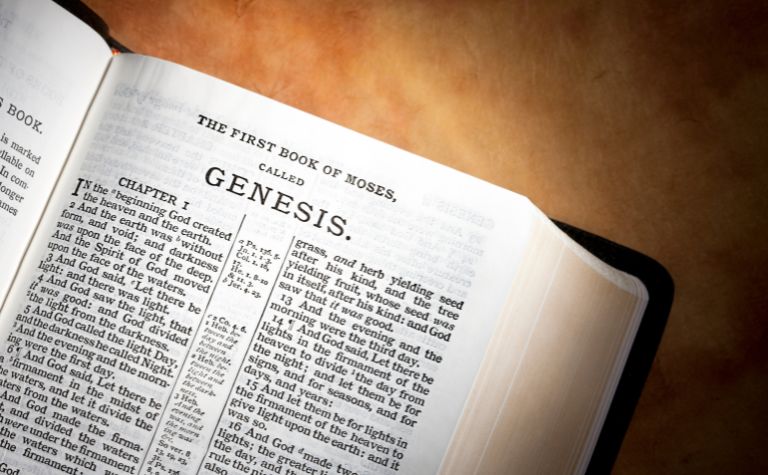Melchizedek is a character in the Bible, found in the Old and New Testaments, that fascinates many readers. The books of Genesis and Psalms in the Old Testament refer to him, as does Hebrews in the New Testament. Although Melchizedek lived about two thousand years before Jesus, an important prophecy compares the two. So, who was Melchizedek, and why is he so important?
Melchizedek was a priest of God and the king of Salem, i.e., ancient Jerusalem, in the time of Abraham. Genesis says Abraham paid a tithe to Melchizedek and received a blessing from him. Additionally, the Psalmist compares him and Jesus. Lastly, Hebrews says Jesus’ priesthood is in Melchizedek’s line.
When does Melchizedek suddenly appear in Genesis? How is his superiority over Abraham revealed in the story? What two offices or roles did Melchizedek have? Why does Pslam 110 mention him in a prophecy about Jesus? Why does Hebrew mention Melchizedek multiple times? Keep reading to learn the answers to these questions and others.
Also, see How Old Was Abraham When Isaac Was Born? to learn more.

Melchizedek Blesses Abraham and Receives His Tithe
The Bible first mentions Melchizedek when he goes out to meet Abraham when he returns from a battle. The narrative doesn’t include any introduction or backstory of him. Similarly, after this scene, Genesis doesn’t explain what happened to Melchizedek or how he died.
Abraham launched a battle because four non-Israelite kings had raided the Hebrew people and kidnapped Abraham’s nephew, Lot (Gen 14:8-12). “They also took Lot, the son of Abram’s brother, who was dwelling in Sodom, and his possessions, and went their way” (Gen. 14:12, ESV).
In response, Abraham assembled over 300 men, strategically defeated the thieves and kidnappers, and rescued Lot and others in the process (Gen. 14:13-16). “Then [Abraham] brought back all the possessions, and also brought back his kinsman Lot with his possessions, and the women and the people” (Gen. 14:16).
When Abraham returned home, Melchizedek went out to meet him. Their interaction constitutes the rest of the story and explains why he is such an important figure in Pslam 110 and Hebrews 5-8.
Melchizedek was a king
Genesis explains that when Abraham returned, “Melchizedek king of Salem brought out bread and wine” (Gen. 14:18). Most scholars and historians identify “Salem” as Jerusalem. Psalm 76:2 supports this interpretation: “His abode has been established in Salem, his dwelling place in Zion” (ESV).
| Name | Meaning |
|---|---|
| Melchizedek | King of Righteousness (Heb. 7:2) |
| King of Salem | King of Peace (Gen. 14:18) |
| El Elyon | Most High God (Gen. 14:18-20) |
Melchizedek’s gift of bread and wine demonstrates that the king was pleased with Abraham’s rescue of their people and possessions.
Some Genesis commentators find significance in the bread and wine because they represent Jesus’ body and blood in the Lord’s Supper, according to the New Testament. Other scholars argue there is no significance to the food and drink.
Melchizedek was a priest
Genesis 14:18 adds that Melchizedek was “priest of God Most High.” In the Old Testament, a priest was a servant of God who had responsibilities that included making sacrifices (Lev. 1-10), blessing people (Num. 6:22-26), and teaching people God’s commands (Deut. 3:9-12).
What fascinates many readers is that Melchizedek predates the Law and the sacrificial system by 800 to 1,000 years. This means that Melchizedek was an unusual priest.
Priests in Israel came from the tribe of Levi, yet Melchizedek lived much earlier than that. This chronology plays an important part in how the Psalmist and the writer of Hebrews refer to him.
Also, see How Old Was Abraham When He Died? to learn more.

Melchizedek in the Book of Psalms
Though Psalm 110 had meaning in the life of David, it’s also a prophecy about the coming Messiah, Jesus Christ. The passage identifies the Messiah as David’s descendant and Lord (Psa. 110:1). Psalm 110 is the most quoted passage in the New Testament, illustrating its importance in the Bible. [1]
One description in the passage states that the Messiah will be a priest like Melchizedek: “You are a priest forever after the order of Melchizedek” (Psa. 110:4). Levitical priests were in the order of Aaron, Moses’ brother. Yet, the Messiah wouldn’t be in that traditional line. Instead, he would be in Melchizedek’s.
Aaron and the Levitical servants that came from his line were priests. However, Melchizedek was a priest and a king. Since Jesus was also a priest and king, Melchizedek is a better comparison for him than Aaron.
Additionally, the prophet Zechariah foretold that the king and priest roles would coexist in the Messiah.
“It is he who shall build the temple of the Lord and shall bear royal honor, and shall sit and rule on his throne. And there shall be a priest on his throne, and the counsel of peace shall be between them both” (Zech. 6:13; see Zech. 6:9-14, ESV, emphasis added).
Also, see When Did Abraham Live? to learn more.

Melchizedek In the Book of Hebrews
One Bible scholar explains, “The author of the Letter to the Hebrews uses Melchizedek (Heb. 5-7) in his great argument showing Jesus Christ as the final and perfect revelation of God because in his person he is Son and in his work he is Priest (1:2-10:18).
The author cites Psalm 110:4, indicating that Jesus’ priesthood is of a different order than the Levitical: it is ‘in the order of Melchizedek.'” [2]
Hebrews cites four reasons why Jesus’ priesthood is superior to Aaron’s. The basis for the arguments is that Abraham represents the Levites in his interaction with Melchizedek.
Hebrews 7:9-10 read, “One might even say that Levi himself, who receives tithes, paid tithes through Abraham, for he was still in the loins of his ancestor when Melchizedek met him” (ESV).
(1) Melchizedek received tithes from Abraham, showing his superiority
Hebrews 7:4 reads, “See how great this man was to whom Abraham the patriarch gave a tenth of the spoils!” (ESV) Abraham, and in a way, the Levites, paid tithes to Melchizedek, not vice versa.
(2) Melchizedek blessed Abraham, showing his superiority
Hebrews 7:6-7 read, “But [Melchizedek] who does not have his descent from them received tithes from Abraham and blessed him who had the promises. It is beyond dispute that the inferior is blessed by the superior” (ESV). The greater (Melchizedek) blessed the lesser (Abraham).
Melchizedek’s order isn’t temporary like Aaron’s order
Hebrews 7:15-16 refers to Jesus and alludes to his resurrection from the dead. “This becomes even more evident when another priest arises in the likeness of Melchizedek, who has become a priest, not on the basis of a legal requirement concerning bodily descent, but by the power of an indestructible life.”
Melchizedek’s order isn’t temporary like Aaron’s order
Hebrews 7:16 reads, “For it is witnessed of [Jesus], ‘You are a priest forever, after the order of Melchizedek.'” Verse 20 adds that Jesus was “made a priest with an oath by the one who said to him: ‘The Lord has sworn and will not change his mind, “You are a priest forever.”‘”
Also, see How Many Wives Did Abraham Have? to learn more.
References:
[1] Psalms 73-150 by James Hamilton. EBTC. p. 291.
[2] The New International Bible Dictionary. p. 639.
Related Questions
A lot of people know that Jesus of Nazareth lived a long time ago. They may even know that he was a Jewish man born at the time of the Roman Empire. Yet, they are unclear about exactly when he was on...
Regular Bible reading is a valuable habit, as Scripture is God's message to people. However, the Bible's 66 distinct books, featuring various authors, settings, and themes, can make it challenging...
